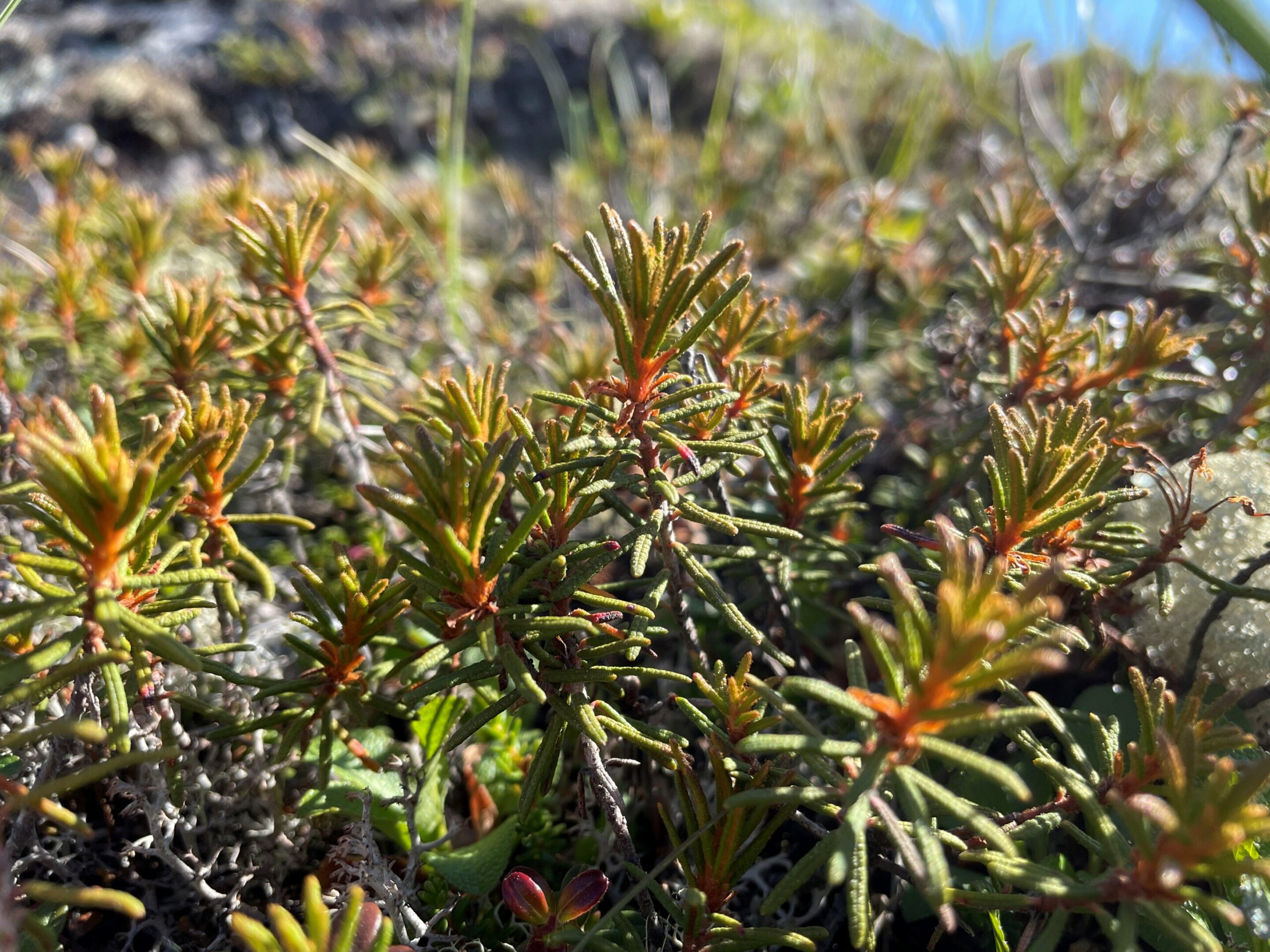Traditional medicines and folk remedies have been the source of many modern treatments. These practices are still widely used today and could provide solutions to various health conditions. A recent study published in ACS Omega details how a team of researchers has identified compounds found in the leaves of a specific medicinal Labrador tea plant used by the First Nations of Nunavik, Canada, which could help fight malaria.
Labrador tea refers to a group of closely related plants of the Rhododendron genus that are evergreen shrubs with fuzzy leaves, which are steeped to make herbal teas. These teas are commonly used by the Inuit and Indigenous nations in the U.S. and Canada to treat colds, flu, headaches, stomach aches, nasal congestion, and many other ailments. While previous research has shown that essential oils extracted from the plants have antimicrobial properties that could help fight antibiotic-resistant microbes, the chemical composition of the plants and their potential antimicrobial applications remain relatively unstudied.
The researchers, led by Normand Voyer, aimed to characterize the makeup of the Rhododendron subarcticum plant, also known as Dwarf Labrador tea, for the first time and test its antiparasitic activity. The plant grows in the subarctic conditions of the region from Alaska to Siberia, just south of the Arctic Circle. To do this, the team gathered R. subarcticum leaves from Nunavik, a region in northern Quebec, and extracted the essential oil to analyze it.
Gas chromatography, mass spectrometry, and flame ionization detection were used to identify 53 compounds in the plant. The analysis revealed that 64.7% of the oil was comprised of ascaridole, followed by p-cymene at 21.1%. While this combination of compounds has not been previously reported in closely related North American Labrador tea varieties, it has been found in subspecies originating in Europe and Asia.
The team then tested the essential oil’s antimalarial properties by exposing two strains of Plasmodium falciparum, a malaria-causing parasite, to the oil or to just ascaridole. The experiment revealed that ascaridole was the primary component that acted against both strains of the parasite, even the one that was resistant to known antimalarial drugs. This finding is consistent with other antiparasitic traditional medicines that are rich in the compound.
The study highlights the importance of researching and protecting plants used in traditional medicines, especially those from harsher climates impacted by climate change. The potential of Indigenous practices and folk remedies to provide solutions to modern problems is significant and should not be overlooked.



Leave a Reply